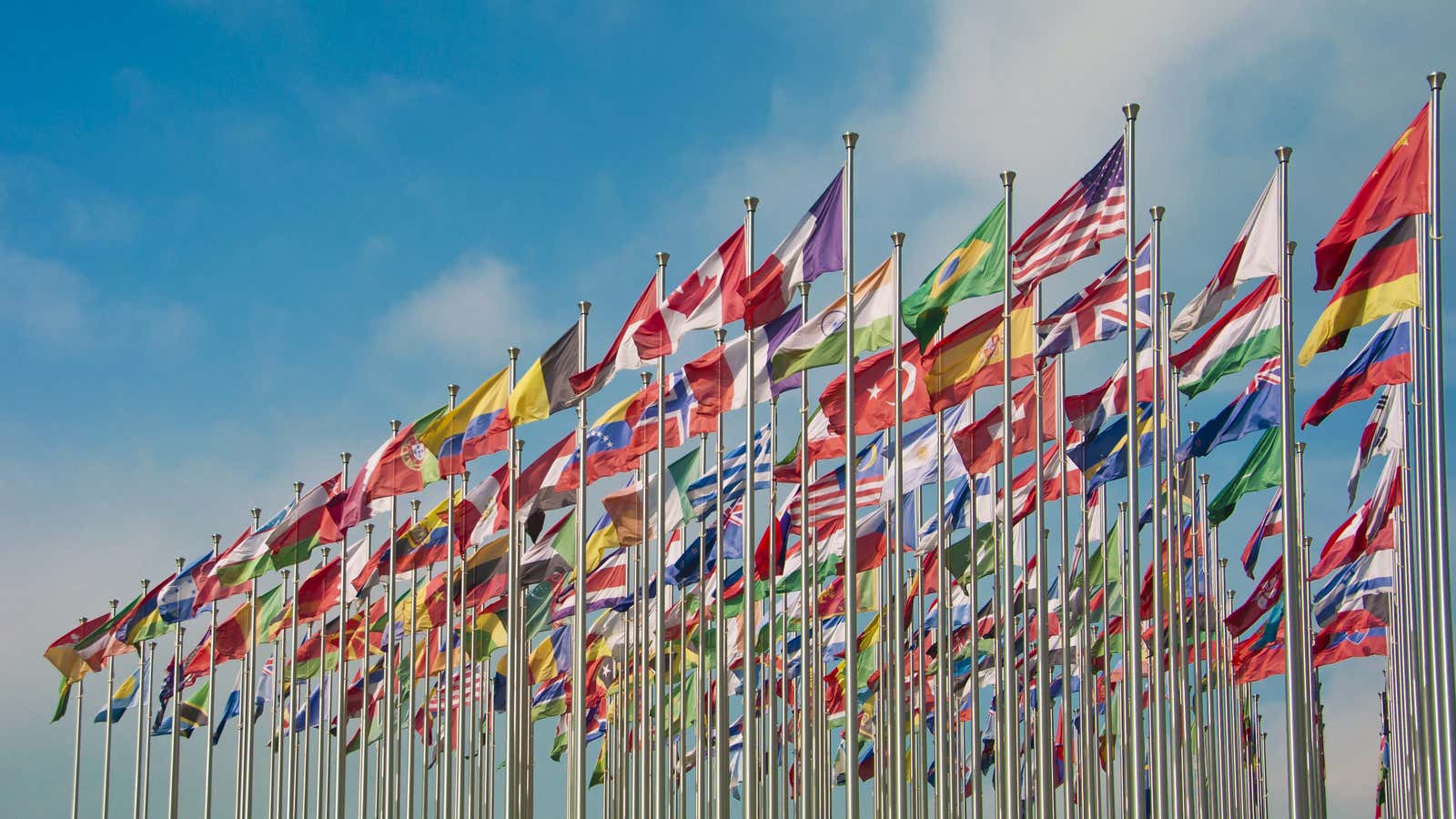The US annually grumbles about how much it pays to the United Nations. The US has also been increasing its voluntary payments to the UN. In fact, between 2010 and 2017, the US increased its voluntary spending by 54% on an inflation-adjusted basis, from $4.5 to $6.9 billion.
Payments to the UN are broken into two types: voluntary and assessed. All 193 member countries are required to fund a certain amount of the organization; these are the assessed payments, and they’re determined using a complicated formula. Voluntary payments to the UN are made into specific programs that countries want to support, such as strategic objectives, region-specific activities, or emergency resources. There is not a requirement to contribute to voluntary programs.
By combining both voluntary and assessed payments, these nations are the top funders to the UN in 2017.
Looking at voluntary payments alone, however, it’s apparent which nations have chosen to invest extra. The US, Germany, and the UK top the list, and according to the UN’s publicly available funding data, all have chosen to increase voluntary outlays since 2010.
Of the OECD’s 36 member countries and its five additional “key partners,” one third have decreased their voluntary funding between 2010 and 2017. In 2017, these 41 nations provided nearly 90% of the UN’s government-sourced revenue.
Outside the OECD, where UN contributions are lower, there can be dramatic swings in UN payments. The Solomon Islands has the greatest increase of all members: a staggering 38,710% increase over the seven-year period; that’s $1,829 to $709,796. Though, the UN’s history of poor quality data collection might explain this jump. The Vatican has increased its donations by 187%, perhaps reflecting the marginally more liberal tendencies of Pope Francis, elected to the position in 2013.
The most drastic reduction in support has come from Spain. The country’s 91% reduction in UN spending over seven years meant $665 million less for the organization.
